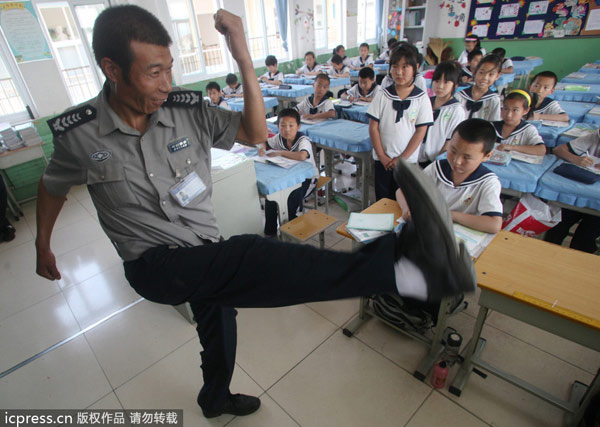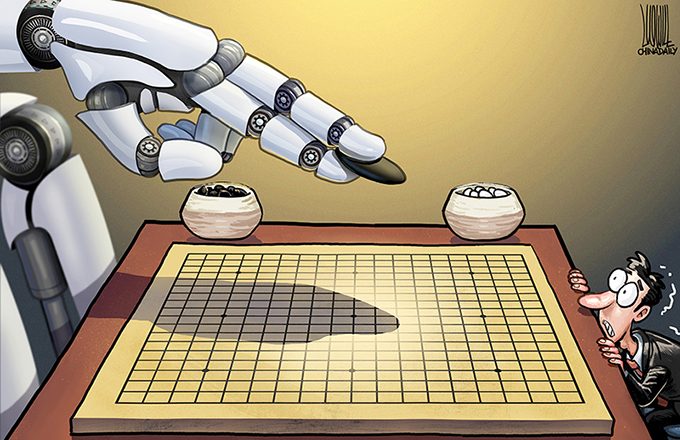Self-defense is more than just a 'zombie right'
 |
|
A security guard teaches students self-defence skills in a classroom of Huangtai Primary School in Jinan city, East China’s Shandong province in this file photo. [Photo/IC] |
ON SATURDAY, Shandong Provincial High People's Court began a retrial of Yu Huan, a 21-year-old man from Liaocheng, Shandong province, who killed a man when he stabbed four "debt collectors" who were trying to recover money his mother owed. Beijing Youth Daily comments:
The court has not yet made its ruling. However, the Supreme People's Procuratorate posted a statement on Sunday, saying that the first trial was wrong because Yu's actions were in essence self-defense, although they were obviously excessive.
The statement by the Supreme People's Procuratorate received a warm welcome nationwide because although the law allows any citizen to act in self-defense, in practice the legal code for self-defense leaves little room for what people can do to protect themselves. The line is also blurred between self-defense and the use of excessive force. Some law scholars have even joked that the legal code for self-defense has become a "zombie code" that is not applicable in practice.
By posting the statement, the nation's top procuratorate has responded to public opinion, and the Shandong provincial court has also acted in a positive way by posting live records of the court proceedings online.
Of course, courts should make rulings independently depending on the evidence and testimonies presented in court, instead of being swayed by public opinion. But in order to better defend justice and uphold the rule of law, it is necessary for the judiciary to take into account the entirety of a case, including the human element, when applying the law.


















